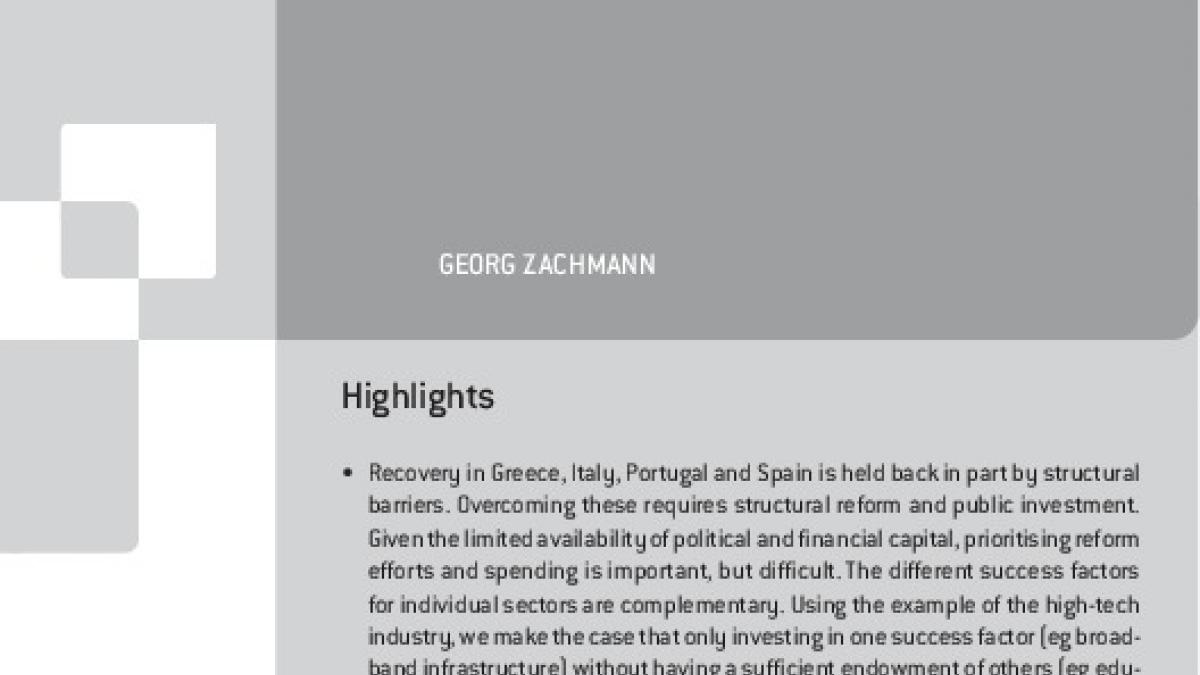Smart choices for growth
Recovery in Greece, Italy, Portugal and Spain is held back in part by structural barriers. Overcoming these requires structural reform and public inve

The different success factors for individual sectors are complementary. Using the example of the high-tech industry, we make the case that only investing in one success factor (eg broadband infrastructure) without having a sufficient endowment of others (eg education) is unlikely to make the sector successful.
One consequence of the complementarity of the different success factors is that public investment and reform efforts should be fine-tuned in order to match the endowment of other factors. This might imply an increase in efforts to tackle several structural barriers at the same time, but it might also imply reducing investment in less promising fields. This in turn requires strategic thinking about whether it is worthwhile pursuing development strategies that require investment in many success factors but that do not promise much success. Such a strategic approach to public investment and reform efforts might make the allocation of scarce public financial and political capital more efficient.



